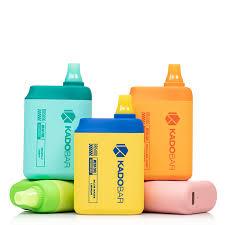The bio vanillin market is a growing segment of the global flavor and fragrance industry, driven by increasing consumer demand for natural, sustainable, and eco-friendly products. Bio vanillin is a natural alternative to synthetic vanillin, which is typically derived from petrochemical sources. It is produced through biological processes such as fermentation, bioconversion, or extraction from natural sources like lignin, vanilla beans, or rice bran. Bio vanillin is primarily used in the food and beverage, cosmetics, and pharmaceutical industries as a flavoring agent, fragrance, and in various formulations.
Contact to request a sample of this report@ https://g3er.short.gy/8v3hz2
Market Growth and Drivers:
The bio vanillin market is expanding rapidly due to several key factors. One of the main drivers is the growing consumer preference for natural and organic products. With increased awareness of health and environmental issues, consumers are looking for products that are free from synthetic chemicals, leading to a rising demand for bio-based flavors like bio vanillin. This trend is particularly strong in the food and beverage industry, where natural ingredients are perceived as healthier and more sustainable.
Another driver is the rise of the clean label movement, where consumers seek transparency in product labeling and prefer products with simple, recognizable ingredients. Bio vanillin fits well into this trend, as it can be labeled as a natural ingredient, boosting its appeal over synthetic alternatives. The demand for bio vanillin is further fueled by the cosmetics and personal care industry, where natural fragrances are increasingly sought after for their perceived safety and environmental benefits.
Sustainability is another key factor driving the market. Synthetic vanillin production is associated with environmental concerns due to its reliance on petrochemicals and the emission of harmful byproducts. In contrast, bio vanillin is produced through renewable biological processes, making it an attractive option for companies aiming to reduce their environmental footprint and meet sustainability goals.
Applications:
- Food and Beverages: Bio vanillin is widely used in the production of ice creams, chocolates, baked goods, and beverages, where it provides a rich vanilla flavor. Its use is expanding as food manufacturers cater to the growing demand for natural flavorings.
- Cosmetics and Personal Care: In cosmetics, bio vanillin is used as a fragrance in perfumes, lotions, and creams. The preference for natural ingredients in the personal care industry has boosted the demand for bio vanillin as a safer, eco-friendly alternative to synthetic fragrances.
- Pharmaceuticals: Bio vanillin is also used in pharmaceutical formulations to mask unpleasant tastes in medicines and supplements. Its natural origin makes it a preferred choice for health-conscious consumers.
Challenges:
Despite its growth, the bio vanillin market faces challenges, particularly around high production costs compared to synthetic vanillin. The processes involved in producing bio vanillin, such as fermentation or extraction, are more complex and costly, which can limit its price competitiveness. Additionally, limited availability of raw materials for bio vanillin production, such as vanilla beans or lignin, can pose supply chain challenges.
Another challenge is the scalability of production. While bio vanillin is gaining traction, the global demand for vanillin is large, and current bio vanillin production levels may not yet meet this demand at a competitive price.
Browse Detailed Summary of Research Report@ https://www.uniprismmarketresearch.com/verticals/chemicals-materials/bio-vanillin.html
Market Outlook:
The bio vanillin market is expected to grow at a CAGR of 8-10% over the next decade, driven by consumer demand for natural products, the growth of the clean label trend, and the rising focus on sustainability. North America and Europe are leading markets due to high consumer awareness and regulatory support for natural ingredients, while Asia-Pacific is expected to witness rapid growth due to expanding food and beverage industries.
As technology advances and production processes become more efficient, the bio vanillin market is likely to see continued growth, with increasing adoption across multiple industries. Bio vanillin’s sustainable and natural profile will remain a key factor in its long-term market potential.
View Most Popular Reports by Uniprismmarketresearch.com Here:
Holographic Labels Market - https://www.uniprismmarketresearch.com/verticals/chemicals-materials/holographic-labels.html
Industrial Coatings Market - https://www.uniprismmarketresearch.com/verticals/chemicals-materials/industrial-coatings.html
Modular Flooring Market - https://www.uniprismmarketresearch.com/verticals/chemicals-materials/modular-flooring.html
Paints and Coatings Market - https://www.uniprismmarketresearch.com/verticals/chemicals-materials/paints-and-coatings.html
Porous Ceramic Market - https://www.uniprismmarketresearch.com/verticals/chemicals-materials/porous-ceramic.html
Recycled Plastics Market - https://www.uniprismmarketresearch.com/verticals/chemicals-materials/recycled-plastics.html
Security Labels Market - https://www.uniprismmarketresearch.com/verticals/chemicals-materials/security-labels.html
Technical Fabrics Market - https://www.uniprismmarketresearch.com/verticals/chemicals-materials/technical-fabrics.html
Timber Trade Market - https://www.uniprismmarketresearch.com/verticals/chemicals-materials/timber-trade.html




